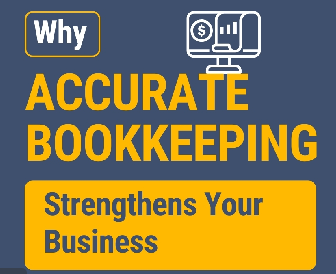
In the dynamic landscape of business, managing cash flow effectively is essential for sustaining operations and achieving long-term success. As business owners navigate the complexities of financial management, incorporating expert services such as bookkeeping, guidance from a trusted tax advisor, and strategic input from a seasoned tax consultant can make all the difference.
Here are some actionable tips to help business owners optimize cash flow and ensure financial stability.
Implement Robust Bookkeeping Practices:
Effective bookkeeping is essential for maintaining accurate financial records, tracking income and expenses, and ensuring transparency in financial transactions. By implementing robust bookkeeping practices, such as regular recording of transactions, categorizing expenses, and reconciling accounts, businesses can gain valuable insights into their cash flow patterns. This enables them to identify areas for improvement, make informed financial decisions, and ultimately optimize cash flow.
Monitor Cash Flow Regularly:
Regular monitoring of cash flow is critical for understanding the financial health of a business and identifying potential cash flow challenges. By regularly reviewing cash flow statements and projections, business owners can track inflows and outflows of cash, identify trends or patterns, and anticipate future cash needs. This proactive approach allows businesses to take timely actions to address any cash flow gaps or surpluses, ensuring financial stability and continuity of operations.
Seek Expert Financial Guidance:
Navigating the complexities of cash flow management requires expert financial guidance. Business owners should partner with a reputable financial firm like Nidhi Jain CPA, the best CPA in the Bay Area, to access comprehensive bookkeeping services, expert tax advisory, and strategic input from seasoned tax consultants. By leveraging the expertise and resources of a trusted financial partner, businesses can optimize cash flow, minimize financial risks, and achieve long-term financial success.
Plan for Tax Obligations:
Strategic tax planning is essential for managing cash flow and avoiding surprises come tax season. Business owners should work closely with a trusted tax advisor to understand their tax obligations, take advantage of available tax incentives or credits, and develop strategies to minimize tax liabilities. This may involve setting aside funds for tax payments regularly, making estimated tax payments, or exploring tax-saving opportunities such as deductions or credits. By planning for tax obligations proactively, businesses can avoid cash flow disruptions associated with tax payments and maintain financial stability.
Managing Accounts Receivable and Payable:
Efficient management of accounts receivable and payable is critical for managing healthy cash flow. Businesses must stay on top of invoicing and collections to accelerate receivables while also managing payables to optimize cash flow. By effectively managing these processes, businesses can ensure a steady inflow and outflow of cash, minimizing disruptions to cash flow.
Optimize your business’s cash flow and financial management with expert support from Nidhi Jain CPA. Our comprehensive services include bookkeeping and guidance from trusted tax advisors and tax consultants.
Get in touch with us today to learn more and experience the difference professional financial support can make.



